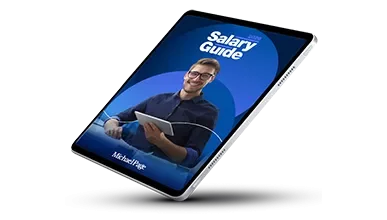How do we find the candidates you need?
With over 45 years' experience in recruitment, Michael Page has the largest pool of professional candidates and uses innovative AI and social tools that match you with the people you need.
With over 90% of our current business being repeat clients, it's clear that our range of recuitment services; drafting job descriptions, posting job ads, finding suitable candidates, setting up interivews and providing onboarding advice, leads to successful results.
What’s more, we offer a wide range of specialisms, including HR, meaning our consultants understand the nuances of the roles you're looking to hire for.
With over 90% of our current business being repeat clients, it's clear that our range of recuitment services; drafting job descriptions, posting job ads, finding suitable candidates, setting up interivews and providing onboarding advice, leads to successful results.
What’s more, we offer a wide range of specialisms, including HR, meaning our consultants understand the nuances of the roles you're looking to hire for.
%0
Of clients
choose to work with us again for their recruitment needs.
0
FTSE Company
Michael Page is listed as one of the top 250 FTSE companies listed on the London Stock Exchange.
+0
Years of experience
With over 45 years of experience, we deeply understand the unique market and job needs across the UK.
At Michael Page, we excel in sourcing top-tier talent for HR roles across a wide range of industries. Our deep sector knowledge, combined with a consultative approach, allows us to understand the unique challenges and requirements of each client.
Whether you're scaling up production, driving innovation, or enhancing operational efficiency, we connect you with professionals who bring the right technical expertise and leadership capabilities.
Here are a handful of HR sectors our specialists can assist you with:
- Talent Acquisition & Recruitment
- HR Business Partnering
- Learning & Development
- Employee Relations & Engagement
- Compensation & Benefits
- HR Operations & Systems
- HR Leadership

No matter how specialised the job descriptions are, our consultants at Michael Page can find the perfect applicants that fit them.








